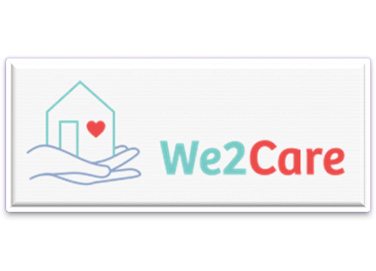We2Care
Women Empowerment – Caregiver Acceptance & Resilience E-Learning
Canada depends on Temporary Foreign Workers (TFWs), also known as migrant workers, to fill labour shortage in agriculture, hospitality, construction, child/senior care, and other low-skilled occupations. TFWs, especially women live-in caregivers (LC), constitute a vulnerable population. Their health is compromised by the precarious and harsh working and living conditions they encounter. There is a paucity of research on the mental health of LCs, their support systems and access to mental health services. Results from one of our earlier studies with LCs showed that their mental health and wellbeing were compromised by precarious migration-employment status that leads to exploitation, and deskilling and downward social mobility that reinforce alienation. They endured hardship to support family back home. Their work demands them to live double lives of public cheerfulness and private anguish, leaving them with unrecognized mental health challenges.

In response to the mental health needs of migrant LCs, we developed a pilot study titled Women Empowerment – Caregiver Acceptance & Resilience E-Learning (WE2CARE) to promote the mental well-being and resiliency of migrant LCs. The objectives include exploring the effectiveness of this program in achieving the following: (1) reducing psychological distress (depression, anxiety, and stress); (2) promoting committed actions of self-care; and (3) building mutual support social networks.
A total of 36 LCs residing in the Greater Toronto Area were recruited and randomly assigned to either the intervention or waitlist control group. The intervention group received a 6-week web-based psychosocial intervention based on Acceptance and Commitment Therapy (ACT). Seven women dropped out due to competing demands, 29 remined with the project. Study results showed a lower level of depression, anxiety, and stress among the intervention group compared with the control. However, the differences were not significant due to small sample size and the unexpected COVID-19 crisis. The results also showed a significant improvement in mindful qualities and external resilience, particularly in life satisfaction and accessible support among the intervention group.
Publications:
- Vahabi, M., Wong, J.PH. Caught between a rock and a hard place: mental health of migrant live-in caregivers in Canada. BMC Public Health 17, 498 (2017). https://doi.org/10.1186/s12889-017-4431-4 https://bmcpublichealth.biomedcentral.com/articles/10.1186/s12889-017-4431-4
- Fung KP, Vahabi M, Moosapoor M, Akbarian A, Jing-Wen Liu J, Wong JP. Implementation of an Internet-Based Acceptance and Commitment Therapy for Promoting Mental Health Among Migrant Live-in Caregivers in Canada: Protocol. JMIR Res Protoc. 2021 Sep 13;10(9):e31211. doi: 10.2196/31211. PMID: 34515642; PMCID: PMC8694237. (https://pubmed.ncbi.nlm.nih.gov/34515642/
- Vahabi M, Pui-Hing Wong J, Moosapoor M, Akbarian A, Fung K Effects of Acceptance and Commitment Therapy (ACT) on Mental Health and Resiliency of Migrant Live-in Caregivers in Canada: Pilot Randomized Wait List Controlled Trial; JMIR Form Res 2022;6(1):e32136; DOI: 10.2196/32136; URI: https://formative.jmir.org/2022/1/e32136/